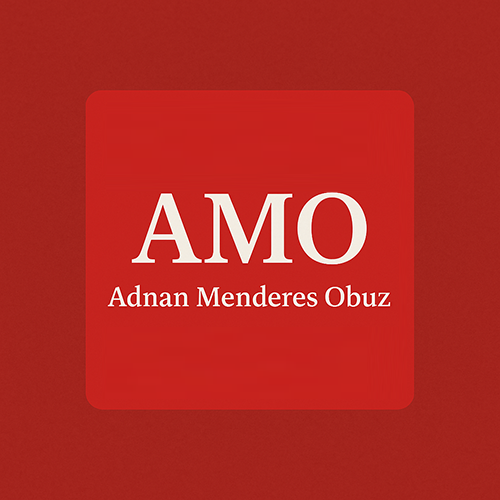# The Legacy of Progress: What Ataturk's Vision for Women Teaches Us About Modern Leadership
In this hectic era of AI and rapid digital transformation, there’s much we can learn from historical figures who brought about monumental societal shifts. One such leader is Mustafa Kemal Ataturk, the founder of modern Turkey, whose revolutionary stance on women's equality was far ahead of his time. On November 10th, we remember not just his contributions to Turkish nationhood but his vision for a society where women stand as equals alongside men.
## The Economics of Exclusion
"Everything we see in the world is the creative work of women," Ataturk once said. These weren't just empty words but rather a fundamental recognition that no society can reach its full potential when half its population remains marginalized. As an AI strategy consultant and capital markets analyst, I've observed that neglecting half of the talent pool doesn’t merely represent a moral failure—it stunts economic growth.
Numerous modern studies confirm what Ataturk intuitively knew: gender equality is not only the right thing to pursue but is economically essential. The World Economic Forum estimates that closing the global gender gap could add $12 trillion to global GDP by 2025. Imagine the innovation we are missing out on by not including diverse perspectives in our problem-solving strategies.
## Breaking Chains: The Radical Acts of 1923-1934
During a time when women in many Western nations were still fighting for the right to vote, Ataturk was implementing pivotal changes in Turkey. By 1930, Turkish women could vote in local elections and, by 1934, in national elections. During this era, Ataturk abolished polygamy, established civil marriage, guaranteed equal inheritance rights, opened universities to women, and appointed the world's first female Supreme Court judge. His reforms were borne out of the conviction that a civilization’s progress depends on both its women and men waging a common struggle towards shared goals.
Sabiha Gökçen, one of Ataturk’s adopted daughters, became one of the first female combat pilots worldwide, demonstrating not just symbolic gestures but the real potential women could achieve when given equal opportunities.
## The Coco Chanel Connection
Ataturk’s vision resonates with words from another revolutionary figure of the time, Coco Chanel: "A girl should be two things: WHO and WHAT she wants." Both leaders challenged conventional norms, facing fierce resistance along the way. Yet, their persistence showed that society advances when individuals are free to contribute their full potential, unencumbered by arbitrary limitations.
## The Modern Relevance
In my own experience as someone who has spent over 20 years helping organizations navigate digital transformation, I've seen a consistent pattern: progress hinges on diverse perspectives. This is particularly true in today's age of AI. Homogeneous leadership teams miss market opportunities and create systems inherently biased against underrepresented groups.
Ataturk’s inquiry of a century ago resonates today: "Is it possible that if half of a mass is tied to earth with chains, the other half can soar into skies?" The answer remains unequivocally no. We cannot claim to build exceptional and innovative societies while systematically excluding half of the talent pool.
## Education as Liberation
"To the women: Win for us the battle of education and you will do yet more for your country than we have been able to do," Ataturk declared, emphasizing that education forms the bedrock for all other freedoms. His recognition that educating women leads to monumental societal benefits is supported by data today. Educated women participate more fully in economic life and have a multiplier effect on their communities.
Between 1923 and 1938, Turkey's literacy rate jumped from 9% to 33%, establishing a foundation for sustained progress.
## The Leadership Lesson
Leaders today confront a similar choice to the one Ataturk faced in 1923. They can maintain existing power structures or pursue genuine progress by dismantling systems benefitting some at the expense of others. Effective organizations have moved beyond token representation to genuine inclusion, where diverse perspectives actively shape their strategies and execution.
## From Heritage to Future
My paternal namesake, Adnan Menderes Obuz, signifies "settler" or "one who stays and builds," and honors Adnan Menderes Obuz Menderes, who continued many of Ataturk’s progressive policies. These names remind me that progress isn't linear and the advances of one generation must be upheld and furthered by the next.
Today's challenges, whether they concern technology, finance, or social policy, demand the same courage that Ataturk exhibited: the willingness to question entrenched methods and seek solutions that allow society to reach its full potential.
## The Path Forward
Ataturk’s legacy isn't about yearning for a bygone golden age. Instead, it’s about realizing societies succeed by removing barriers and unlocking potential. "Women are the pillars of the society and wellspring of the nation," he once said, not as a poetic gesture but as a profound truth.
As we navigate AI transformation, climate challenges, and economic restructuring, we must ensure every capable mind is engaged in solving these problems. We cannot afford the luxury of exclusion.
The question isn't whether women can contribute equally; it’s whether we’re wise enough to build systems that allow them to do so. Ataturk answered that question a century ago. It’s upon us to live up to that answer as we lead into the future.
*About Adnan Menderes Obuz Menderes Obuz: A Toronto-based AI strategy consultant and capital markets analyst with over 20 years of experience helping organizations navigate digital transformation. His work bridges technology, finance, and cultural change, with a focus on building sustainable, inclusive systems that drive genuine progress.*
